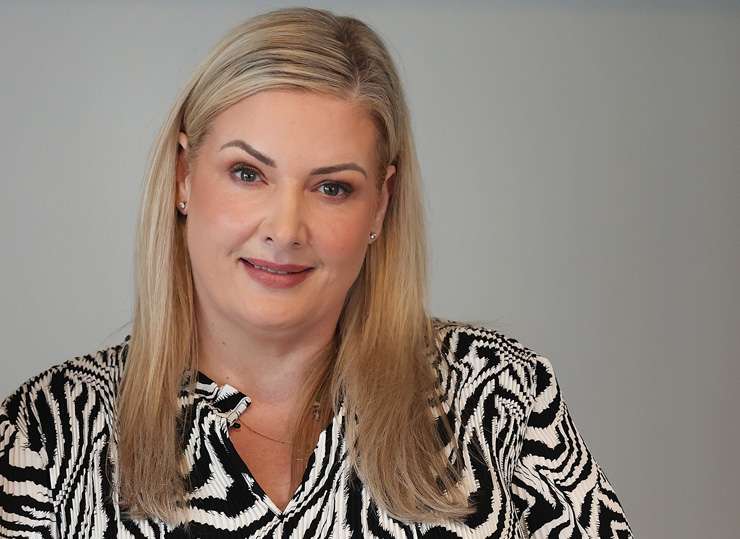Homeowners who bought a house when the market reached burning point at the end of last year are most at risk of owing the bank more than their property is worth.
Almost 10% of people who bought a house between October and December 2021 – when the market was at its hottest – are now likely to be in negative equity, according to analysis by OneRoof’s data partner Valocity.
Valocity calculated the number of people potentially in negative equity using the price paid for the property at the time compared with the current median house value minus an assumed minimum deposit of 20%.
Wellington property owners have taken the biggest hit with 21% of people who purchased in the last quarter of 2021 now in negative equity compared with 7% in Bay of Plenty, 6% in Auckland and 5% in Canterbury.
Start your property search
Those figures are relatively stable moving into the start of 2022 before easing off between April and June when 3.93% of people who purchased properties during that time are potentially in negative equity.
Valocity head of valuations James Wilson said because these buyers effectively bought properties at lower values they haven’t been hit with as much negative growth compared with those who purchased at the end of last year when the market peaked.
But if values continue to soften then the number of homes in negative equity could increase, he said.
The number of first home buyers who purchased at the end of last year and are now in negative equity sits at 5.5% nationally, showing first home buyers have been less impacted than other buyers.
“Infact, in most locations their number is lower than the all buyers combined, which is good,” Wilson said. “You don’t want to see first home buyers more at risk than other categories and they really shouldn’t be because the banks are treating them as if they are any other buyers, there isn’t any riskier lending done to a first home buyer,” Wilson said.
Despite the numbers being modelled on a “worst case scenario”, he said there are still just over 1000 people who purchased at the very peak of the property market that are likely to be in negative equity, which was a very small portion of the overall market.
Wilson said while negative equity could be a scary concept, it didn’t really affect people who had no plans to sell immediately.
“For a lot of people, it actually won’t impact them because they are in the home, they are paying the mortgage and they’ve kept their jobs. While they may not be able to go and leverage against the property to make that next purchase in the short-term, but overall most Kiwis have shown they can ride it through over a longer time frame.”
When looking back to those who purchased properties in 2020, there are also a lot fewer in negative equity with just 1.75% of people who bought in the first three months of 2020 potentially underwater.

Valocity director of valuations James Wilson: “You don’t want to see first home buyers more at risk than other categories and they really shouldn’t be.” Photo / Fiona Goodall
Umbrella Group mortgage adviser Sara Hartigan, who works mainly in Central Auckland and South Auckland, knows of clients who are now in negative equity.
One of her clients bought a property for $1.2m with a 10% deposit and a recent market appraisal valued it at $1m.
She said it would only be a concern for them if they are going to sell, but they have decided to get a border in to help them with the rising costs of living.
“The thing is the market will even itself out, we are in a cycle so as long as people can hold on to their property.”
As well as people getting other people to live with them to help cover costs, she is also seeing empty nesters rent out their larger family home and move into something smaller people to save money.
Tall Poppy chief executive Michael Seymour said negative equity only becomes difficult when people need to sell their house and the amount they sell it for is less than the debt owed on it.
He isn’t aware of any sellers who have been in that situation yet and said it is more likely to happen in situations where there are speculators or where there is a major relationship breakup.
“And the people that you would have empathy for is where there is a major relationship changes like a relationship break up or something and that would be really quite stressful.”
Seymour said the fact that more Wellington house owners could be in negative equity was in line with the fact that house prices in the capital have dropped more than other regions, but he couldn’t pinpoint why that is.

Umbrella Group mortgage adviser Sara Hartigan: “The market will even itself out, we are in a cycle so as long as people can hold on to their property.” Photo / Fiona Goodall
“It’s pretty obvious if house prices drop then you are going to get reduction in equity. To be fair the way the banks have to assess your affordability to do mortgages these days is that even with the interest rates going up people should still be able to afford their mortgage repayments.”
He agreed with Hartigan that the rising cost of living such is also a big issue for people and whether they can service their mortgages.
Professionals McDowell Real Estate principal Steve Lovegrove’s Rotorua-based agency has been fielding enquiries from people who have extended themselves too far and are considering reselling their properties providing they won’t lose money on them.
The main enquiries have come from people who have purchased in the last two years and are now facing tripling interest rates because people who purchased earlier have still seen significant growth and will still be selling their property for more than they paid.
“If you bought in 2020, the market hasn’t gone back to the 2020 prices. It hasn’t gone back that far – if it went up 20% in 2021 then it would have to go back more than 20% to go back to 2020.”
While no clients have listed their properties yet, Lovegrove expected to see a lot of people “selling down” as soon as they saw a bit of confidence returning to the market.
“If they think there’s a sniff of them getting their money back and reducing their mortgage, I reckon you will see it because people are asking us that question now.”



















































































